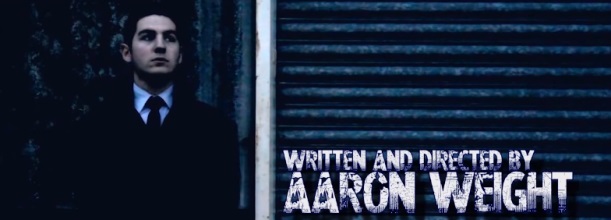Life as a low-budget indie director

Stage 1 – The Idea
Every film starts with an idea, and my mind is full of them. As is my phone, and several notebooks. I honestly never know when creativity will next strike – frustratingly, it often happens in the cinema! However, not all of my ideas get developed into full films; in fact a lot of them are single punch lines for jokes and sketches. The ones that do fly move on to the next stage…
Stage 2 – The Script
I never liked writing in English or English Literature lessons when I was at school, but when I’m writing for my own work it’s brilliant! Most of the time I’ll start a script writing by hand in a notebook; later I’ll transfer it to the computer, through careful deciphering of my terrible handwriting. Once that’s done, I’ll usually record an audio version of it, with me playing all of the parts (badly) just so I can hear how it sounds.
Stage 3 – Pre-production
If a script is doable enough for me (this isn’t, alas, my full job, and I’ve got a wife and kids to worry about) then it moves forward to pre-production, or as I like to call it, the “desperately seeking actors” stage. It’s often a struggle for me at this point, because I don’t have access to any kind of decent budget I have to rely on actors coming on board as favours, perhaps in return for some photography or film work for them later. I have been fortunate enough to work with some very humble people who are happy to donate their time to my projects, and we have forged great friendships as a result. The issue comes because they very often have paid work they need to be getting on with and that can make scheduling difficult. Without a doubt, the worst part of my film process is trying to schedule meetings/rehearsals/shoot dates. The more people involved the more juggling of dates there is, which is why so far my teams have been very small.
Stage 4 – Production
Anyway, assuming everything has gone successfully with the scheduling (though it likely hasn’t!) it’s now time to make the film. And this really is the fun part. There’s nothing like seeing your film come to life, your vision taking form right in front of your eyes, and more importantly, the camera’s eye. Recently I completed a film about witches, set in a forest at night. I had pre-visualised how I wanted it to look, but it was nothing compared to seeing the set live for the first time, with all the lights, special effects and props in place. It was magical. It’s usually fairly smooth sailing for this section of the process, assuming there are no equipment failures and your actors know all their lines…
Stage 5 – Post-production
I don’t hang around. With the exception of Just Rewards (at 20min long my most ambitious project ever) I like to work very fast on getting my films finished when we have wrapped on the set. I edit everything myself, which includes all the audio and music, and any VFX required (though I’m still finding my digital feet in that respect) so although it is a lot of work, I can get on with it to my own schedules and it usually doesn’t take very long. I like to get a working version of the film ready and then preview it amongst the cast, crew and select few people whose opinions I really trust. Their feedback helps me to build up to the final version of the film ready for…
Stage 6 – Release
This is the crucial part. The most important goal of a film maker is getting the film seen. (Incidentally, if you’re reading this far, why not visit my YouTube channel to see all my films?) I rely on my social media avenues to put the link out there in the first instance, with a fevered hope that people will enjoy the film enough to then share it themselves. All the sharing is what helps me to reach a wider audience, my ultimate aim.
Stage 7 – Relax (or not…)
When all this is done, what’s the next step? Go back to the first stage of this article! I like to keep myself busy, so when I’m not producing my own films I’m working on starting my company properly. Xtreme Productions (i.e. me) is available for hire for photography and film making to order. We’ve produced work for some brilliant people so far, including Doug Segal (comedy mentalist) and Gossamer Threads Vaudeville Co (hideously talented people) and we’re always looking for more projects. What can I do for you?
By Aaron Weight
You can find more details of Aaron’s work on his website and contact him on Twitter @aaronweight.





Recent Comments